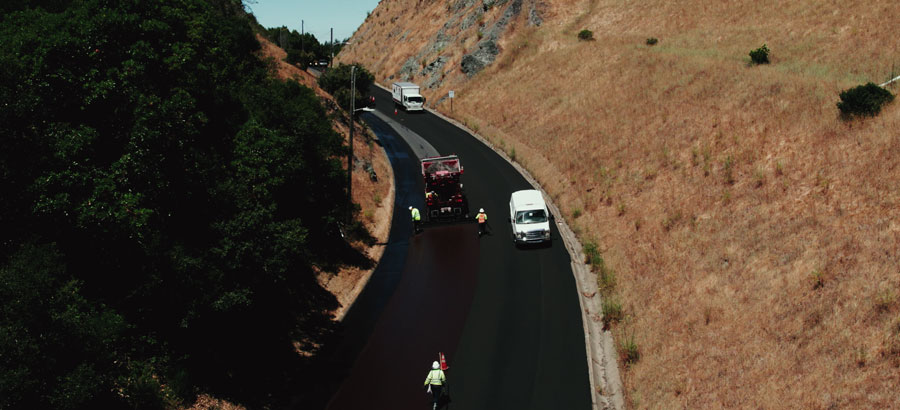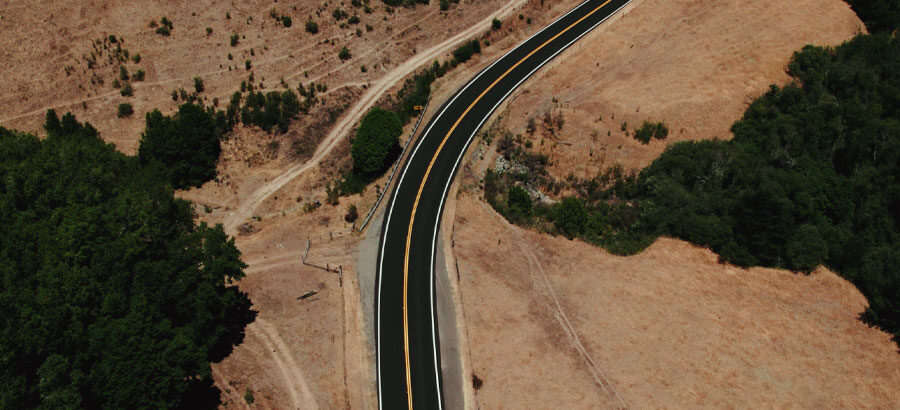As a property manager or business owner, protecting your assets is critical for the safety of your staff and patrons and the return on investment for the business or shareholders. When managing the pavement on your property, having a proper budget and scheduling projects or maintenance in advance can alleviate headaches and stress on your checkbook.
By understanding what to include in your budget and how to schedule your work to gain the most value out of your projects, you’ll be able to keep your property in top shape and your customers happy.
The Importance of Budgets and Maintenance
There is no sugar-coating it; budgets make allocating funds and committing to specific projects easier. Taking the time to understand the current state of your pavement, and the ways to maintain it, is critical when formulating a yearly and long-term budget. Plus, operating within your budget helps you boost your bottom line.
We understand your budgets are due in the fall, but don’t let pavement be an afterthought. It’s important to realize that fall is also the busiest time of year for pavement companies, so finishing your budgets in the winter can be incredibly beneficial. Neglecting to provide proper upkeep can result in safety issues and overall bad curb appeal for your business. Here are a few things to consider when working up your budget:
Pavement Maintenance
Let’s face it. Pavement is one of the last things most property managers or owners consider. Still, budgeting for a pavement maintenance program avoids the last-minute panic of having to resolve a massive issue. Remember, pavement companies are slammed during the summer and fall, so receiving quality short-notice service is impossible. Our experts can help you select the best program to help you plan, save time, alleviate stress, and, most importantly, save money.
Please read our blog on Why Pavement Maintenance Matters to learn more.
Minimize Long-Term Costs
When it comes to your pavement needs, coughing up a larger initial allocation of resources upfront can pay dividends in the long run. This can help prevent costly repairs and the need for an untimely total reconstruction. Pavement is a durable product. By investing more upfront and keeping up with maintenance, you’ll maximize your ROI.
Add A Pricing Buffer
You’ve walked your property and used the Pavement Surface Evaluation and Rating (PASER) system to assess the current condition of your pavement; now it’s time to ballpark your estimate for your budget. Make sure to add a pricing buffer of 10%, depending on when you come up with your budget. The pavement industry usually sees a pricing increase at the beginning of spring. Our experts would be happy to walk through your estimate so that you can plug in accurate numbers for your budget.
Planning Ahead Makes All The Difference
Like most things with your business, planning helps you stay on track and proactive versus falling behind and reactive. There is a lot of importance to developing detailed budgets. Take the time to consult with an expert contractor like DRYCO to help you create a plan of action that ultimately alleviates stress, minimizes delays, and increases value. Here are some key things to consider when formulating your plan:
Minimize Delays
Time is money in any construction undertaking, and pavement work is not exempt from this reality. By planning in advance, potential obstacles and risks can be identified, allowing for the development of contingencies. Delays caused by poor planning or unforeseen circumstances can significantly inflate project costs and disrupt schedules. Proper planning helps ensure that the project proceeds smoothly and is completed within the designated time frame minimizing downtime for your business.
Regarding delays, consult your pavement contractor to see if your work requires a permit. If it does, decide who is pulling the permit in advance. Permits can be issued to the property owner or the contractor performing the work. In California, every city and county has different rules on permitting when it comes to pavement work, so get your pavement experts involved as early as possible. Don’t let this be the cause of a delay.
Ensuring Quality
We understand that things happen, and certain issues may come up unexpectedly. However, having a plan in place will ensure the work gets done and that the contractor has the proper resources and manpower available to perform the highest quality work—well-executed pavement work results in a product that stands the test of time. Proper planning allows for the selection of the right materials and the implementation of adequate quality control measures.
Timing Is Everything
In a perfect world, you’ll be able to schedule your work during a time frame that impacts your business the least and when the contractor has the most availability. Understand that pavement contractors are busiest in the back half of Q2 and Q3. This means that availability is limited, and pricing will be at its highest. Schools must be taken care of in June, and any weather delays will further congest our schedules.
Get involved with us early. After you establish your budget, contact DRYCO in Q1 so that, at the very least, we can get your work scheduled before the mayhem in the summer and fall. Also, take a look at your entire scope of work and prioritize. See if there are projects you can group ahead of time to limit the impact on your business but maximize the value of your investment.
Learn more about how to get the most value out of your pavement project.

Conclusion
Don’t let pavement maintenance be the cause of your headaches. Putting in the time to create a budget and thoughtfully plan your projects and maintenance will pay dividends year after year. If you need help with where to start, please call DRYCO today and speak with one of our pavement experts.
The DRYCO Way
As a one-stop shop in asphalt, concrete, and fencing services, DRYCO offers the capacity, skills, and equipment required to be your all-in-one subcontractor for all asphalt jobs, concrete construction, whole-site building projects, and fencing tasks in the San Francisco Bay Area, Greater Sacramento, and California’s Central Valley region.
With over 270 employees and 50 crews, DRYCO can do your whole project, saving you the headache of working with multiple contractors. Beyond that, DRYCO uses the latest technology to predict how and when preventative measures can and should be taken. This allows companies like yours to stay proactive rather than reactive to an unnecessary interruption to your business.
